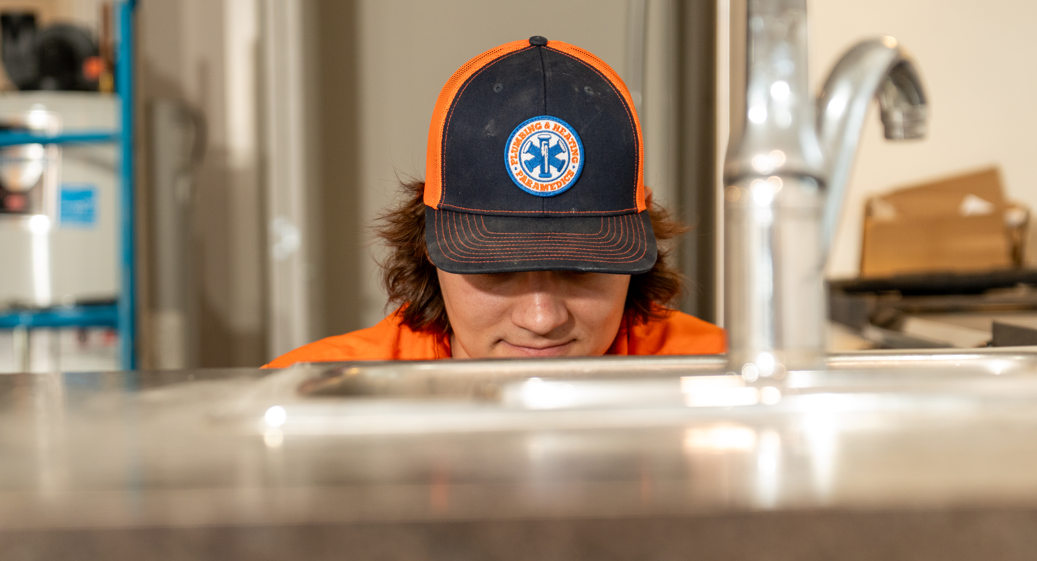How Hard Water can Cost You a Ton

You’re probably familiar with terms “hard” and “soft” water or have heard them in conversation at least. But did you know that the hardness of your water can actually have an effect around your home? Hard water has a higher mineral content than soft water. Where soft water will often have some sodium present, hard water also has heavier elements like calcium and magnesium. The elements aren’t going to harm your health when you drink or bath in harder water, but they do take a toll on pipes and your energy bill. Here are some of the known effects of hard water.
Takes More Energy to Heat
Have you ever heard that if you can put salt in your water you can make it boil faster? It’s actually not true. The quantity of salt you’d need to alter the boiling point is too high for everyday cooking, but the elements and compounds dissolved in water can alter how easily it heats up. You can see this effect in hard water. For every 20 milligrams (mg) or so of elements like calcium carbonate dissolved in a litre (L) of water, it’s takes about 8% more energy to heat it. That translates into and 8% higher energy bill per 20 mg/L.
Cost in Soap And Extra Time Cleaning
Hard water also means spending more on cleaners and spending more time cleaning. This is because when water has lots of dissolved compounds in it, it cannot react with soap as effectively. To compensate, people end up using more soap to wash dishes, having to wash your hair with more shampoo and more often, and needing to use extra cleaning products to wash your floor, bath tub, etc. Worse yet, the minerals in hard water and extra soap can then collect on the side of your tub or sink leaving soap scum that needs to be scrubbed away. Hard water will also often live spots on dishes even after they are cleaned.
Clogs up Pipes with Limescale
This last point is the big one. Just like soap scum can collect on the side of your tub and sink, limescale and compounds begin to collect inside of your pipes. This means water is going to come slower and drain slower. It also means your pipes are more likely to clog and that you’ll need to give us a call to fix emergency problems more often. When limescale begins to build up in your water heater or boiler, it can reduce the efficiency even more! In a pressurized system, hard water can even lead to the boiler failing.
It’s important to remember that most water in North America is hard, that hard water cannot have a negative impact on your health from drinking it, and that even moderately effects of hard water isn’t really a problem. It’s also good to remember that water that is too soft can also cause issues. Like with most things, moderation is best. If you need a water softener installed or have any questions about the hardness of your water, contact Plumbing Paramedics today.
Call us or Book Now an appointment.
Recent Posts
Customer Testimonials
Excellent service. David was right on time. Investigated quickly and explained all the options. Worked very effectively and explained future choices for our upcoming renovation plans. Highly recommend for any plumbing work.
Excellent service. David was right on time. Investigated quickly and explained all the options. Worked very effectively and explained future choices for our upcoming renovation plans. Highly recommend for any plumbing work.
Excellent service. David was right on time. Investigated quickly and explained all the options. Worked very effectively and explained future choices for our upcoming renovation plans. Highly recommend for any plumbing work.
Excellent service. David was right on time. Investigated quickly and explained all the options. Worked very effectively and explained future choices for our upcoming renovation plans. Highly recommend for any plumbing work.
Excellent service. David was right on time. Investigated quickly and explained all the options. Worked very effectively and explained future choices for our upcoming renovation plans. Highly recommend for any plumbing work.
Excellent service. David was right on time. Investigated quickly and explained all the options. Worked very effectively and explained future choices for our upcoming renovation plans. Highly recommend for any plumbing work.
Excellent service. David was right on time. Investigated quickly and explained all the options. Worked very effectively and explained future choices for our upcoming renovation plans. Highly recommend for any plumbing work.
Excellent service. David was right on time. Investigated quickly and explained all the options. Worked very effectively and explained future choices for our upcoming renovation plans. Highly recommend for any plumbing work.
Excellent service. David was right on time. Investigated quickly and explained all the options. Worked very effectively and explained future choices for our upcoming renovation plans. Highly recommend for any plumbing work.
Excellent service. David was right on time. Investigated quickly and explained all the options. Worked very effectively and explained future choices for our upcoming renovation plans. Highly recommend for any plumbing work.
Excellent service. David was right on time. Investigated quickly and explained all the options. Worked very effectively and explained future choices for our upcoming renovation plans. Highly recommend for any plumbing work.
Excellent service. David was right on time. Investigated quickly and explained all the options. Worked very effectively and explained future choices for our upcoming renovation plans. Highly recommend for any plumbing work.




















